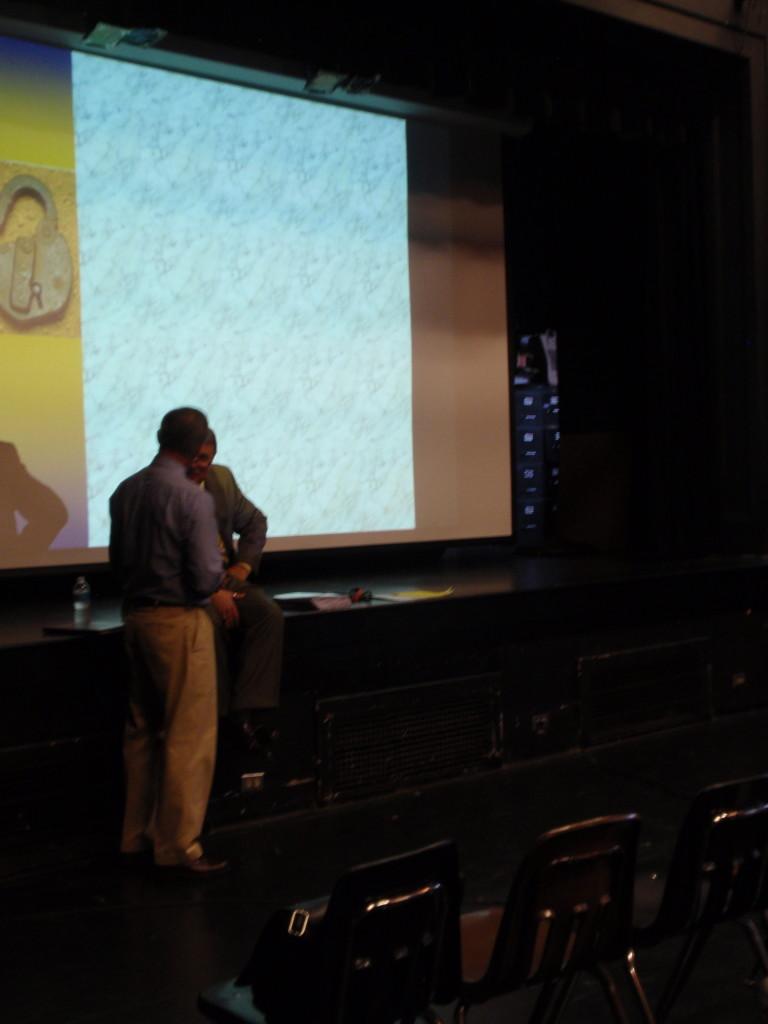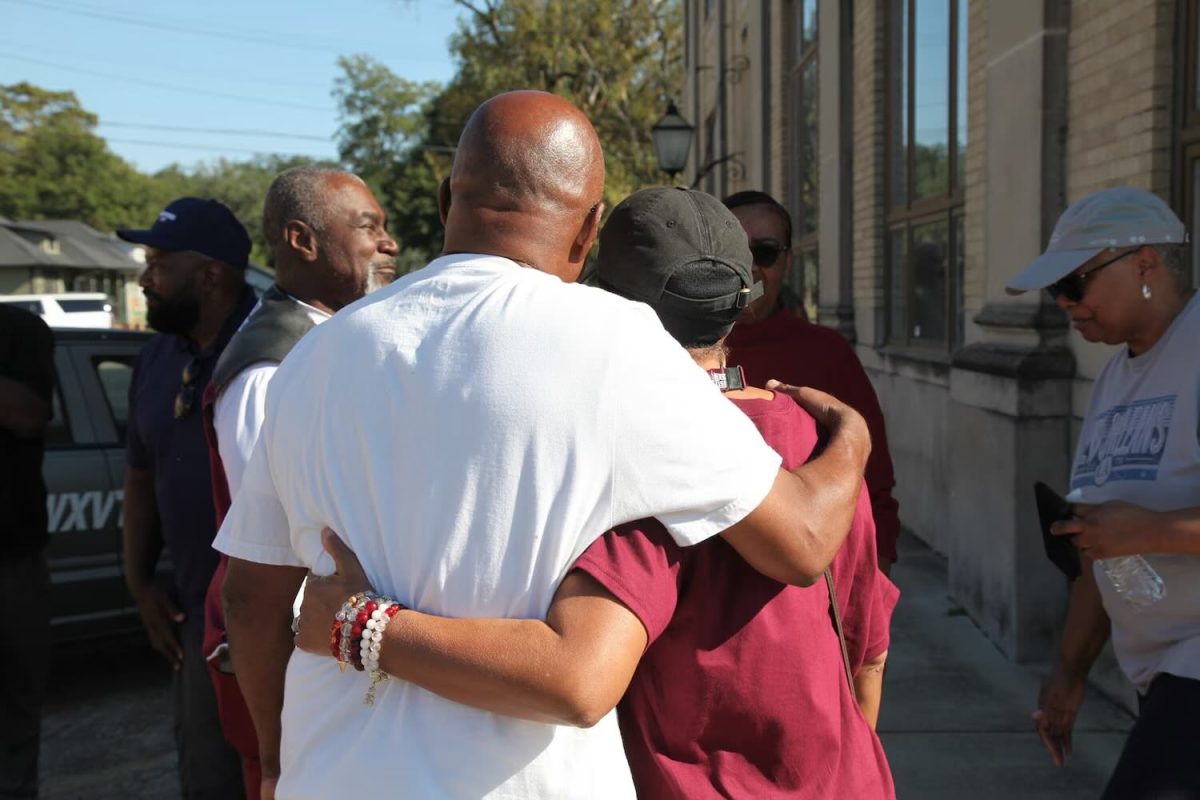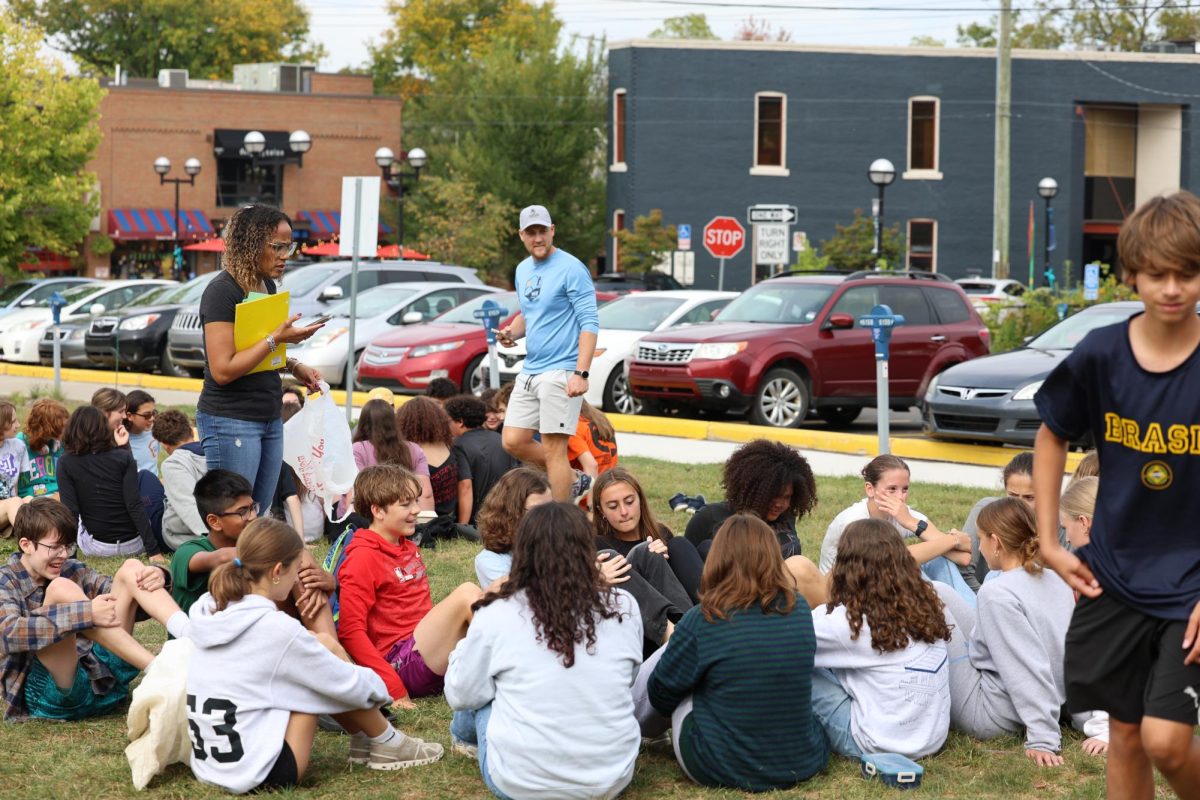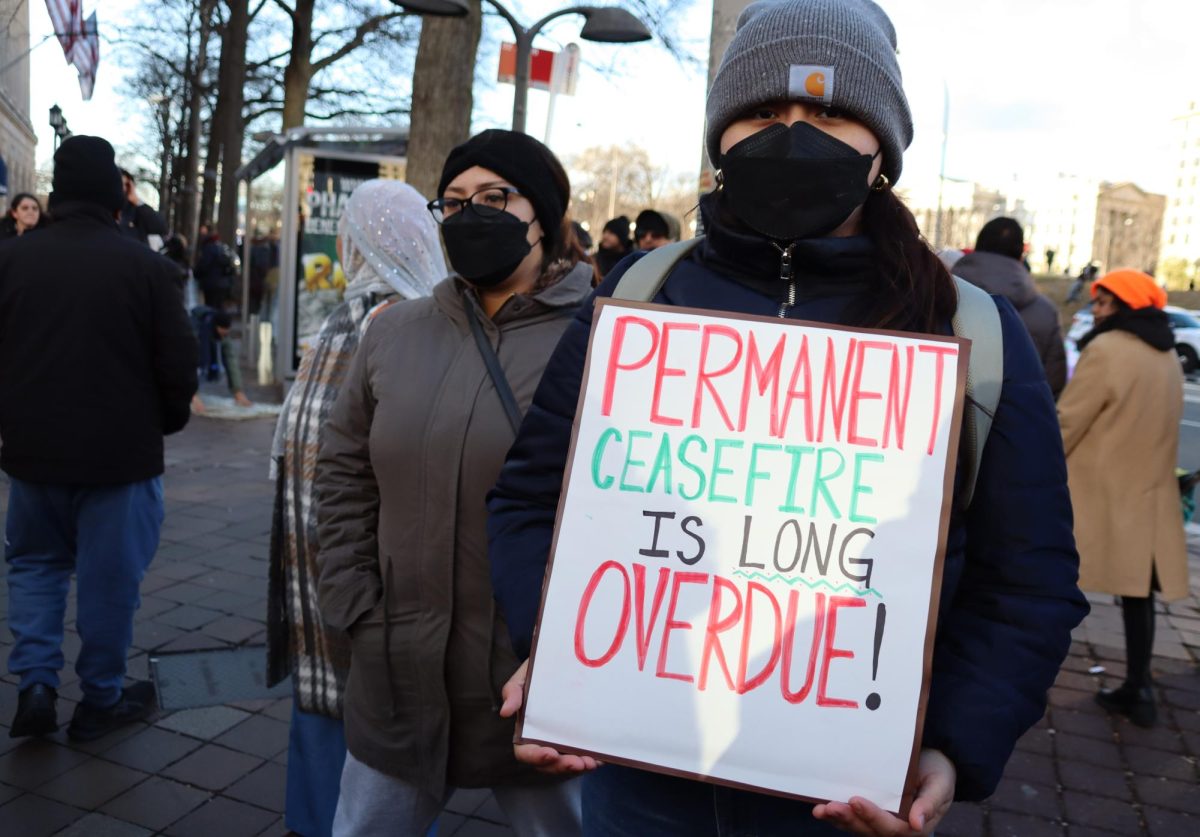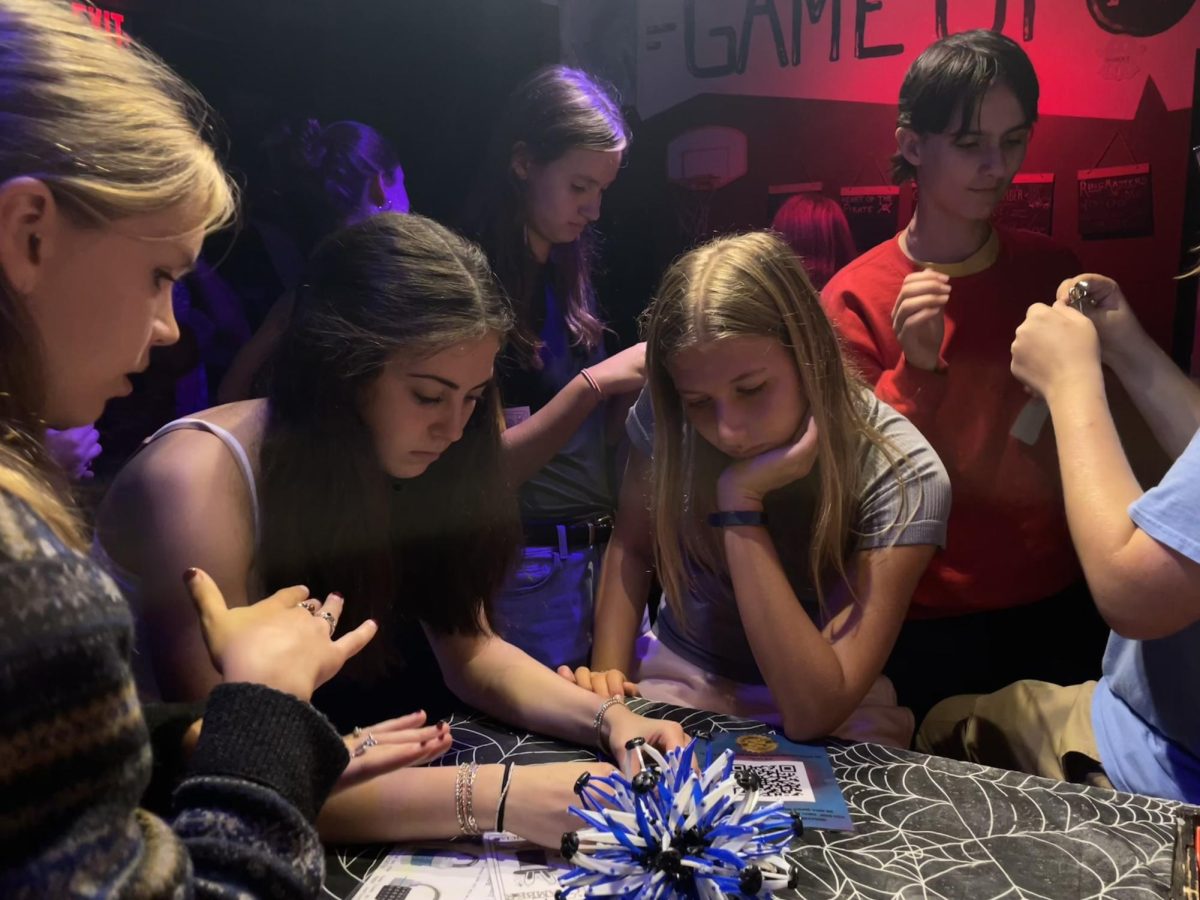John Carroll and Jim Cotter, college admissions’ specialists, spoke Wednesday in Craft Theater.

The world of college admissions is not a place for the shy or faint-of-heart. To be heard and remembered amongst the thousands of voices clamoring for the ears of high school students come junior year, takes persistence and charisma.
At the annual “Big versus Small Colleges: Not a Small Decision” debate at Community High School students were given two different perspectives on the college selection and admission process. Charisma was not in short supply. Both John Carroll, former Director of Admissions at Kalamazoo College, and Jim Cotter, current Director of Admissions at Michigan State University, were engaging speakers.
John Boshoven addressed a packed Craft Theater on Wednesday October 6th, 2010 to introduce both speakers. The event’s purpose was as much to dispel rumors and put apprehensive students and parents at ease, as to debate the pros and cons small and large institutions.
“What do you want your college experience to be? What environment are you looking for?” These were questions Boshoven posed to the audience at the beginning of the program. Boshoven stressed the importance of an early start in the college selection process.
Admitting that finding the right school can be “daunting, ” Boshoven relayed some advice from recently graduated students. “Whenever I ask students who have gone through this already what advice they would give to juniors and their parents they always say ‘I wish I would have started earlier,’ “ he said. “It makes the process a lot more comfortable.”
Boshoven explained that he intended this meeting to “give a better understanding of at least where to start.” He compared finding the right college to shopping at Meijer without a list. “You don’t want to go wandering fro isle to isle,” he said.
By contemplating where a student wants to live and how a student wants to study it is possible to narrow the

vast field of schools in the United States down to a manageable number.
As a way to determine whether or not you are interested in a college or university, Boshoven suggests thinking of it as a t-shirt or similar piece of clothing. Considering the size, style, price, comfort and practicality of the schools on your list can help focus attention on exactly what aspects of the college education experience are important to you.
John Carroll, advocate for small colleges and former Director of Admission at Kalamazoo College, also focused on five things that make such schools desirable. “Study abroad, first year experience, collaborative learning, campus living requirements and innovative curricula are things that small schools bring to the table,” he said.
Carroll agrees that “fit” is the most important factor to consider when searching for the right school. Big schools and small schools are different experiences that are right for certain people, he said. “It is not a matter right or wrong, public or private,” said Carroll. “It is about the right fit.”
Finally, Carroll assured students and parents that just because you do not recognize a college or university by name, does not mean it does not provide a good education and a meaningful college experience.
Jim Cotter, from Michigan State University, also cautions those tackling college selection from falling victim to the pressures and stereotypes of the admissions process.
“In 2008, 70 percent of students who applied to a college or university were admitted to their first choice,” said Cotter.

Cotter believes that students increase their chances of making good, informed choices about higher education if they take the time to do some research. Investigating colleges and universities to see if they have programs students are interested in and an academic life that suits the individual’s personality is important.
“Take changes but be realistic in those chances,” he said.
Throughout the program all three speakers stressed the importance of realizing searching for colleges can be calm and even enjoyable if handled correctly.
“Besides,” said Boshoven, “This is not a lifetime decision. You are not married to the college or university you decide to attend.”



